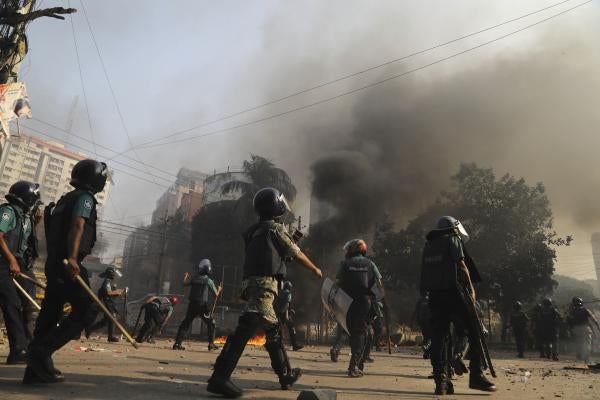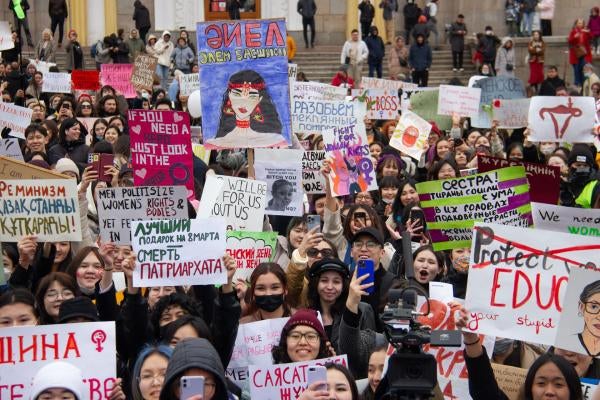Lire la version en français / Lea la versión en español
The global climate crisis affects us all – but some of us more than others.
Migrant workers in the United Arab Emirates (UAE), for example, face a kind of triple whammy of impacts.
First, they often work in extreme heat without adequate protections, and the region is getting ever hotter: climate projections show summer heat extremes will intensify. Extreme heat is a serious health hazard. It can be fatal or have lifelong consequences. Heat can also impair cognitive function, increasing the risk of workplace injuries.
Second, migrant workers in the UAE are often victims of serious labor abuses, like wage theft and exorbitant recruitment fees, which reduces their ability to send money to their families back home.
These remittances have long been a key income source for migrant workers’ relatives, but such money transfers can take on even greater significance during emergencies, like climate-related extreme weather events.
And the UAE’s migrant workers often come from climate-vulnerable countries, like Bangladesh, Nepal, and Pakistan. So, labor abuses that take money out of workers’ pockets can spread cruelty widely.
Third, the UAE is one of the world’s largest oil producers and among the highest per capita emitters of greenhouse gases. Along with other historic emitters, the UAE is fueling the climate crisis, which is central to the other two problems.
Of course, if migrant workers, who form 88 percent of the UAE population, had their rights respected, they might be able to change things for the better. But the UAE bans trade unions, which inhibits workers’ ability to demand things like stronger labor protections. And under the kafala system, workers’ visas are tied to their employers, making them highly dependent and vulnerable.
Perhaps government representatives attending the UN Climate Change Conference (COP28) could bring up these labor rights issues and remind everyone of how they are linked to the climate crisis.
COP28 begins this week. In the UAE.







